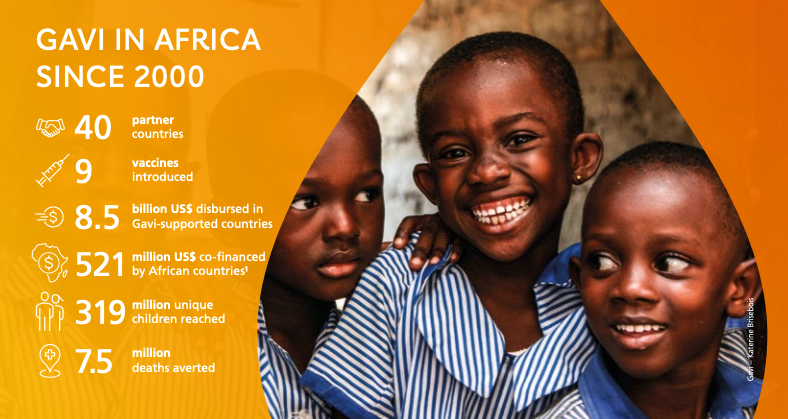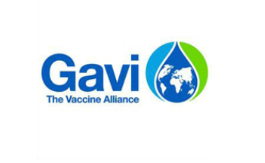DUBAI: It will require a global effort to control the coronavirus outbreak and to develop a vaccine against the disease.
But there is a danger that nationally minded governments will behave only in their own perceived interests, at the risk of exacerbating the crisis and encouraging other life-threatening illnesses.
That is the view of Seth Berkley, CEO of Gavi, the Vaccine Alliance (GAVI), and he should know.
His whole career has been one long fight against infectious diseases, and GAVI has saved the lives of many millions of people, especially children, through its vaccination programs.
“What we’ve learned — and this is very important for the Middle East, with its high numbers of travelers, tourists and religious pilgrims — is that you’re only as safe as the rest of the world. The goal is to make the world safe,” he told Arab News.
GAVI was founded by the Bill & Melinda Gates Foundation 20 years ago to tackle diseases that have for decades plagued the world, especially poorer regions: Polio, meningitis, cholera, yellow fever and others.
Saudi Arabia and the UAE have been significant donors to GAVI, as have other regional governments and philanthropists.
Berkley, a New York-born epidemiologist by training, said GAVI programs have reduced vaccine-preventable mortality by 70 percent, and child mortality rates have been cut in half with the help of GAVI’s programs. “We’re global leaders in vaccine distribution and availability,” he added.
BIO
Born: New York, 1956
Education:
- McBurney School, NYC
- BSc in medicine, Brown University, Rhode Island, US
- Medical training, Harvard University
Career:
- Medical epidemiologist, US Center for Infectious Diseases
- Epidemiologist, Massachusetts department of public health
- Epidemiologist, Ministry of Health, Uganda
- Director, heath sciences, Rockefeller Foundation
- CEO, Gavi, the Vaccine Alliance
He has worked for the infectious diseases unit at the US Center for Disease Control, the body at the heart of America’s response.
He was also involved in the fight against the AIDS epidemic, and studied the lessons learned from Ebola outbreaks in Africa.
At the recent “virtual” G20 in Riyadh, GAVI was charged — along with its partners the World Health Organization (WHO), UNICEF and the World Bank — with coordinating the global COVID-19 response and, ultimately, developing a vaccine against the infection.
Berkley was not surprised when the virus took off. “This is the third coronavirus that has jumped into humans in the last couple of decades, including MERS, which was important for the region, and SARS,” he said.
“I think one of the lessons is to ask whether we’re doing enough to prepare for these kinds of outbreaks, which are evolutionarily certain,” he said.
“There are 30,000 coronaviruses in the database, and many of them have ‘spiked’ proteins that suggest they could affect humans.”
There is a little light at the end of the tunnel. “The good news is that we’ve seen that social distancing and quarantines have been able to stop the epidemic,” he said.

“But longer term, we have to be thinking about effective therapeutics and a vaccine to be able to control it, given the speed with which it has spread across the world.”
Berkley had a warning for regional policymakers: “I think we’ll see more cases in the
Middle East. You have good public health systems and the ability to respond quickly, so you’re in a better place than many of the countries we’re dealing with. But I think it would be foolish to think everything is fine.”
The debate about suppression versus herd immunity has been largely won by the suppressors, he believes. “Ultimately you want herd immunity, but you want it through vaccination. Herd immunity through natural infection would’ve meant millions and maybe tens of millions of deaths. That isn’t an acceptable price to pay,” Berkley said.
In any case, there is still not enough known about the virus to be certain that infection gives immunity, raising the possibility of subsequent pandemics.
“If you let this rip through and then you don’t develop immunity, you have a second wave or a third wave. It’s not a logical solution,” he said.
“But my guess is that this organism will give long-term immunity. It gives a much more robust immune response because it’s a deep lung infection. It’s more like SARS and MERS than it is like the common coronaviruses. But we still don’t know that definitely.”
Some people with an amateur faith in science, including policymakers, have asked why the search for a vaccine is taking so long, with best-case scenarios showing we are still more than a year away.
 But Berkley said that this is a “breath-taking speed” compared to the 10-15 years vaccines usually take to develop, manufacture and distribute. The Ebola vaccine took five years, which was regarded as very fast, he pointed out.
But Berkley said that this is a “breath-taking speed” compared to the 10-15 years vaccines usually take to develop, manufacture and distribute. The Ebola vaccine took five years, which was regarded as very fast, he pointed out.
Any vaccine would have to be effective for everybody, including people such as the elderly with different medical needs, children with their own requirements, and patients with pre-existing conditions.
“So 12-18 months is a floor, if we’re really lucky and if everything works perfectly. But it could be longer,” he said.
Berkley was recently reported as calling for a “vaccine tsar” to oversee the anti-virus effort, including the vaccine hunt.
But he emphasized that rather than putting one individual in charge of the international response, he wants a truly global effort.
“The point is that we need to have a global view. This is really important. Countries in crises tend to think nationally, and that’s what you’d expect because their job is to protect their citizens. But science is global, and you want to make sure that the products are the best anywhere in the world,” he said.
The Ebola vaccine is a case in point. It was developed in Canada, then taken on by American companies, and was finally manufactured in Germany. “That’s the way science works. Right now there are 54 vaccines in the WHO list, though some say there’s double that number being worked on. You can’t take 100 vaccines forward in accelerated fashion, but equally you don’t just want one or two,” Berkley said.
“So how do you coordinate that process? You have to start preparing for manufacture early, and you can’t do that for 100 vaccines, but you can for a smaller number.” Apart from the risk that national governments fail to respond in a globally coordinated manner, with richer countries grabbing therapeutics and vaccines at the expense of poor places, the other thing that keeps Berkley awake at night is the danger that the world will take its eye off the ball with other seriously infectious diseases.
I think one of the lessons is to ask whether we’re doing enough to prepare for these kinds of outbreaks.
“In places that have weak health systems and limited health workers, they’ll be focused on corona outbreaks. That will mean a drop in vaccine coverage and inability to respond to other outbreaks,” he said.
“We saw this in West Africa during the Ebola outbreak, where there were large reductions in immunizations and deaths of health workers. We saw it in the Democratic Republic of Congo, where in the most recent Ebola outbreak 2.5 times the number of people died of measles than died of Ebola. There’s a huge risk this is going to happen,” he added.
“Some countries with big epidemics are scrambling to take care of their citizens, and that’s natural. But it’s also important in the G20 and G7 groups that they take a global view. With Saudi as G20 president, it’s a unique opportunity to take this global view,” Berkley said.
“I’ve had this conversation in the past with Saudi Arabia, which has been a big supporter of GAVI. If you’re worried about importation of yellow fever or meningitis by people who go on the Hajj, you may choose to vaccinate people coming on the Hajj, but the real way to control it is to stop epidemics in the countries those people came from.”
GAVI is funded by the Bill & Melinda Gates Foundation and other philanthropic organizations, but it needs its resources “replenished” every five years, and national governments are a prime source of funding. Saudi Arabia contributed $25 million to the earlier financing round.
With a replenishment conference due to be held in the UK in June now likely to be a virtual event because of the crisis, Berkley — usually a “replenishment astronaut” - is now locked down in the organization’s Swiss headquarters doing the rounds of governments and other potential donors with the aid of digital technology.
GAVI has set a target of at least $7.4 billion to fund its work until 2025. It is financially innovative, and has tailored financial instruments tothe Middle East in the past, including a total of $750 million of sukuk — bonds that comply with Islamic law
“The region is incredibly generous in terms of its charitable contributions, but this isn’t only charity, it’s also self-interest,” Berkley said.
“We want to make sure there aren’t raging epidemics anywhere, because they’d threaten the Middle East as well as the rest of the world.”




















